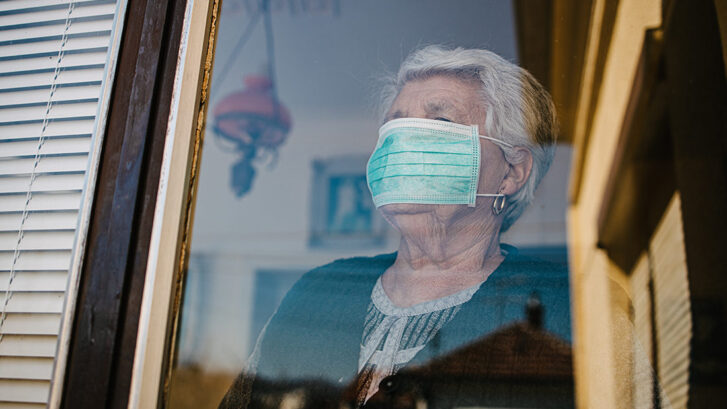Why COVID-19 Hits Older Adults Harder
Our concierge doctors have said previously that COVID-19 affects all ages, including young children. But the highest death toll has been among older people, from ages 60-65 and up. In the U.S., 80 percent of deaths from this pandemic have occurred in adults age 65 and older.
Part of this is because so many of these older victims live in close quarters such as retirement homes and nursing facilities, where it is difficult to self-isolate. But a major contributor stems from the fact that their immune systems are less vigorous than when they were younger. And the immune system is critical in fighting off the infection.
Immune response
Because we lack sufficient testing capability or any effective treatment for COVID-19 (although some drugs have shown signs of promise), the only real weapon we have right now against the illness is the body’s own immune system.
But our immune systems have never seen anything like the SARS-CoV-2 coronavirus, so they lack the cellular memory that tells them how to mount an effective defense. In addition, some research suggests that one reason the novel coronavirus is such a potent enemy is that—as with HIV, the virus that causes AIDS—it attacks the immune system’s T lymphocytes (known as “T cells”), which are key to the body’s immune response.
Older adults, weaker immune systems
Researchers have known for months that the majority of hospitalizations and deaths are occurring in older adults and those with compromised immune systems. Because the immune system itself becomes less robust with age, this may explain why older adults are more susceptible.
Here’s why:
- The number of T cells in the body declines beginning around age 20.
- The immune system’s ability to detect threats also declines with age.
- The immune system as a whole becomes slower to respond to threats in older adults.
- The immune cells also tend to become less effective against invaders.
How to boost your immune system
Many of those factors are beyond the control of aging adults. But there are tried-and-true ways to help the immune system in its battle with COVID-19, cancer, flu, or other ailments. We’ve listed these in the past, but believe they’re worth repeating.
- Eat well
A healthy diet is the foundation of a healthy body. Poor-quality foods—sugar, salt, fats, processed foods—all trigger inflammation throughout the body. Opt instead for fresh fruits and vegetables, nuts, high-quality/low-fat protein, whole grains, beans and legumes, and water.
- Get enough sleep
The time spent asleep is when the body lowers the stress hormone cortisol and repairs the damage to cells encountered during the day. Seven to eight hours nightly is optimal.
- Exercise
Regular exercise is also crucial to boosting the immune system. When you engage in moderate-intensity exercise for two hours and thirty minutes every week, the cells release a protein called Interleukin 6, which has an anti-inflammatory effect throughout the body. But even a brisk walk confers cardiovascular benefits that improve your overall health.
- Reduce stress
Chronic stress causes the body to react with chronic inflammation. Relaxation exercises, meditation, yoga, deep breathing . . . anything that helps reduce stress will also reduce inflammation and improve immune function.
- Engage in a hobby
Anything that you can focus on fully at the moment will take your mind off your stressors and allow your body to adjust cortisol levels to normal.
- Don’t smoke
Every puff of a cigarette triggers inflammation throughout the body. In addition, smokers have been found to have a more difficult time recovering from a COVID-19 infection.
Other precautions
In addition to protecting your immune system, the best way to stay safe is to not be exposed to the virus in the first place.
- Stay home as much as possible
- Order food and other items online for home delivery or curbside pickup if it’s available, or ask someone else to shop and pick up prescriptions for you.
- Many stores are offering special shopping hours for older adults, so try to go during these times.
- Plan to order and pick up all your prescriptions at the same time to cut down the trips you must make.
- Go where it’s safe
- If you have to go out, do not go to places where people aren’t wearing masks or face coverings. They have been shown to markedly reduce the spread of infected droplets in the air and on surfaces.
- And be sure the store encourages social distancing of six feet or more between customers.
- Practice good hygiene
- Disinfect the shopping cart, using disinfecting wipes or spray if available.
- If possible, use touchless payments, avoiding money, a card, or a keypad. If you must handle these items, use a hand sanitizer immediately afterward.
- Do not touch your eyes, nose, or mouth.
- As soon as you arrive home, remember to wash your hands for at least 20 seconds.
And remember, if you have any questions or concerns, please let us know.

